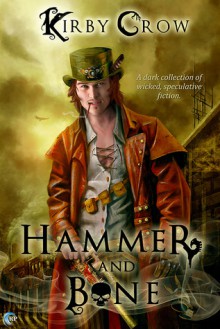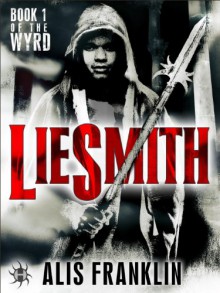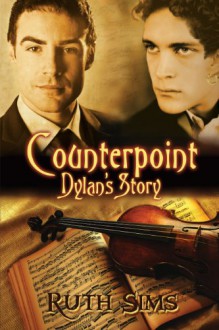
It was one of those hard-to-rate books, because while it undeniably holds quality, I also undeniably didn’t enjoy it very much. In other words, although the writing is definitely far above average and describing this book as merely okay wouldn’t be accurate, it ended up being only an okay read for me. I hope that the difference makes sense.
I’ll try to explain.
This is not my first read by Kirby Crow. I’ve always had very conflicted, mixed, frustrating feelings as far as her stories are concerned and I invariably follow the same path from ecstatic marvel to bored, grumpy mood. The beginning invariably hooks me. I am invariably fascinated by the lush, palpable, visual, wonderfully evocative and detailed world building, all wrapped up in the atmosphere, waiting for the story to deliver its punch. Then usually halfway through, I am invariably losing focus and interest, noticing that the characters are a bit too flat for me to actually care for them, that the story development is a bit too predictable or basic, or that it is wandering, that the story lines are not up to the quality of the writing. And yes, it is perhaps unfair, but that’s how it is. Frustrating.
“Hammer and Bone” is a collection of short stories and although collecting tales from different worlds, from dystopia to fantasy with incursions in horror, it is a coherent, whole work about pain, survival, about choices, about people teetering between Right and Wrong, between Lamb and Wolf, between Hammer and Bone. There is no romance in there. It is indeed about relationships, love, but always and foremost about unsettling, straining situations, with people snapping, toppling over, and ending on different ends or places on the hammer-and-bone spectrum. Fascinating topic.
I will not review nor rate each story. I really liked one of them because I am partial to mind games and pacts with the devil, I really disliked one of them because I felt emotionally manipulated, one other choice took me by surprise and I liked how unapologetically immoral yet practical it was, most of them were okay reads. My most disliked story seems to be others’ favorite, it’s all subjective. What matters is that none of the stories was bad, but none of them truly stood out either, that I sometimes wondered what was the point besides the obvious one, that I wasn’t immersed deep enough in the characters’ psyche to topple over with them, and that the turning point that is so important in such stories often felt rushed. All in all, I followed my usual pattern. I was hooked, I waited for the punch, I grew frustrated, I grumbled. The stories are too short to wander, but it’s still like they are losing themselves in their own creepy, eery, lovely atmosphere; and although I wouldn’t scratch one word from said atmosphere, I still think that the quality, the care, the depth, the pace, the word count even for world building, characterization and story development are unbalanced. It’s not about less, it’s well and truly about more. More sharpness and focus, mainly.
It doesn’t matter how much I like Kirby Crow’s prose and how much I wish her stories would work for me, they don’t. If you’re familiar with her work and have had the same kind of frustrations, I doubt that this book will change anything.
If you are new to her work, it could be a good start, since the stories will give you samples of her writing in different kinds of setting without the feeling of hopping from one topic to another. If you mind the lack of romance and/or if you are not into dark stories but into fantasy, I’d suggest to begin with the Scarlet and the White Wolf series though.
If you are already a fan, especially a fan of Angels of the Deep, you obviously don’t have the same reservations and my guess is that you will love it.

 Log in with Facebook
Log in with Facebook 









